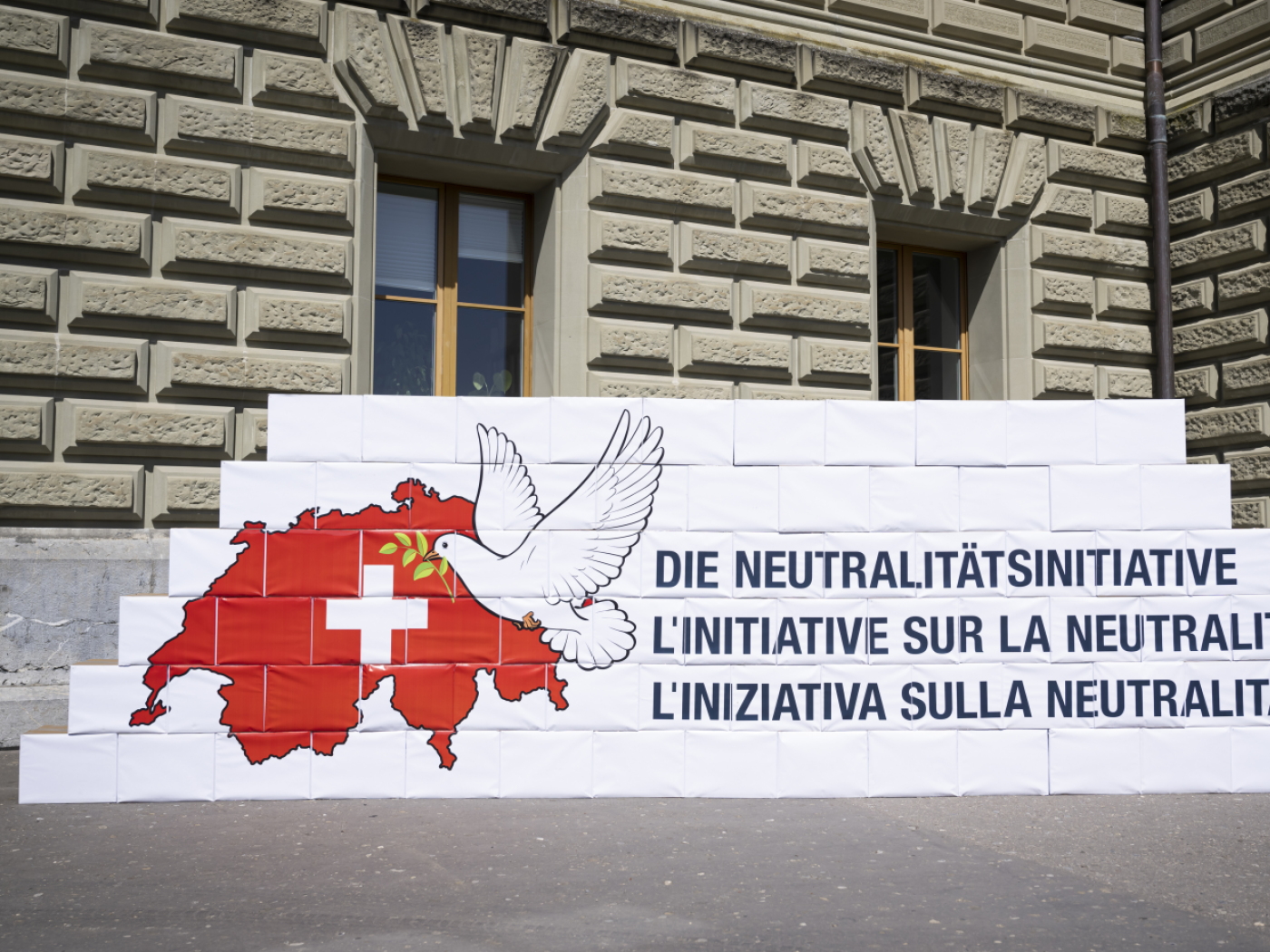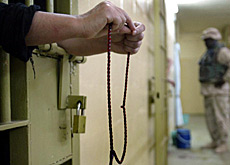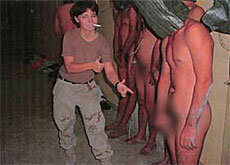
Bern faces pressure to act over abuses in Iraq

Switzerland is coming under increasing pressure to help bring the perpetrators of war crimes in Iraq to justice.
Switzerland has officially condemned apparent abuses committed by coalition forces, but legal experts and non-governmental organisations (NGOs) say it could do a lot more.
On Wednesday, United States senators were shown fresh photographs and videos of US troops torturing and humiliating captives, which they described as “disgusting” and “significantly worse” than anticipated.
The Swiss foreign minister, Micheline Calmy-Rey, has also expressed her “anger” at the mistreatment of Iraqi prisoners by coalition forces.
The foreign ministry has promised to respond by next week to a letter from the International Federation for Human Rights (IFHR) that calls on Bern to launch an investigation into alleged abuses in Iraq.
“Severe violations”
The IFHR said Switzerland – as the depository state of the Geneva Conventions – should host an international conference to examine the “severe violations of international humanitarian law committed since the start of military operations in Iraq”.
According to the Swiss-run International Committee of the Red Cross (ICRC), only a tribunal has the power to define the abuses perpetrated by coalition soldiers against Iraqi prisoners as war crimes.
“If we are to believe the extracts of an ICRC report published in the ‘Wall Street Journal’ last week, then we are indeed dealing with war crimes,” says Luigi Condorelli, professor of international law at the University of Geneva.
“The humiliations and the acts of torture reported by the ICRC constitute severe violations of the third and fourth Geneva Conventions.”
Poor training
The Geneva Conventions oblige all signatory states to bring perpetrators of war crimes to justice. Washington and London last week pledged to find and try those responsible of abusing Iraqis and to compensate victims.
But Philip Grant, who heads up Trial, a Swiss-based NGO that fights war crimes, blames the US and Britain for failing to uphold the Geneva Conventions.
“They didn’t train their troops charged with looking after Iraqi prisoners to uphold these conventions,” Grant told swissinfo.
Grant points to the findings of US general Antonio Taguba who last week presented a damning report on the 800th military police brigade – the unit charged with controlling Iraqi detention centres – to the US Senate.
“[There was] failure in leadership from the brigade commander on down, lack of discipline, no training whatsoever and no supervision,” he told senators.
Accountable
The Senate committee charged with investigating these abuses is now trying to find out who was responsible for issuing orders to US troops.
According to Grant, anyone who knew of these allegations of torture but failed to act is accountable in the eyes of the law.
He adds that even if the US and Britain fail to pursue those responsible, the signatories to the Geneva Conventions are obliged to do so.
The deputy director of the Swiss Directorate of International Law at the foreign ministry, Roberto Balzaretti, supports this view. “But it is still too early for Switzerland to take action,” he says.
Arms exports
But Alain Bovard of the Swiss branch of Amnesty International argues that Switzerland could take other steps.
“Bern can file a formal complaint before the United Nations Committee Against Torture,” he says.
The NGO last week proposed this option in a letter to Calmy-Rey. It also called on Switzerland to stop exporting arms to the US and Britain on the grounds that these two nations no longer met the conditions set out in the federal law governing the use of arms.
Luigi Condorelli says Switzerland should also call on the International Humanitarian Fact-Finding Commission to investigate abuses in Iraq.
The commission, whose main purpose is to investigate allegations of grave breaches of the Geneva Conventions, has its seat in the Swiss capital, Bern. The permanent body is recognised by 66 states and is composed of 15 individuals.
However, the body has not been used since its creation in 1991.
swissinfo, Frédéric Burnand in Geneva
Switzerland is the depository state of the Geneva Conventions, which were established in 1949.
They form the backbone of international humanitarian law and contain 140 articles aimed at protecting and assisting civilian and military victims of conflict.
Article 13 stipulates that prisoners of war must be humanely treated at all times and that they must be protected, particularly against acts of violence or intimidation, and against insults and public curiosity.
The ICRC revealed last week that it had warned Washington a year ago about alleged mistreatment of Iraqi detainees.
The US has apologised for the prisoner abuse and pledged to bring perpetrators to justice.
Pictures of mistreated and humiliated prisoners at the Abu Ghraib prison near Baghdad caused outrage across the world.

In compliance with the JTI standards
More: SWI swissinfo.ch certified by the Journalism Trust Initiative






































You can find an overview of ongoing debates with our journalists here . Please join us!
If you want to start a conversation about a topic raised in this article or want to report factual errors, email us at english@swissinfo.ch.